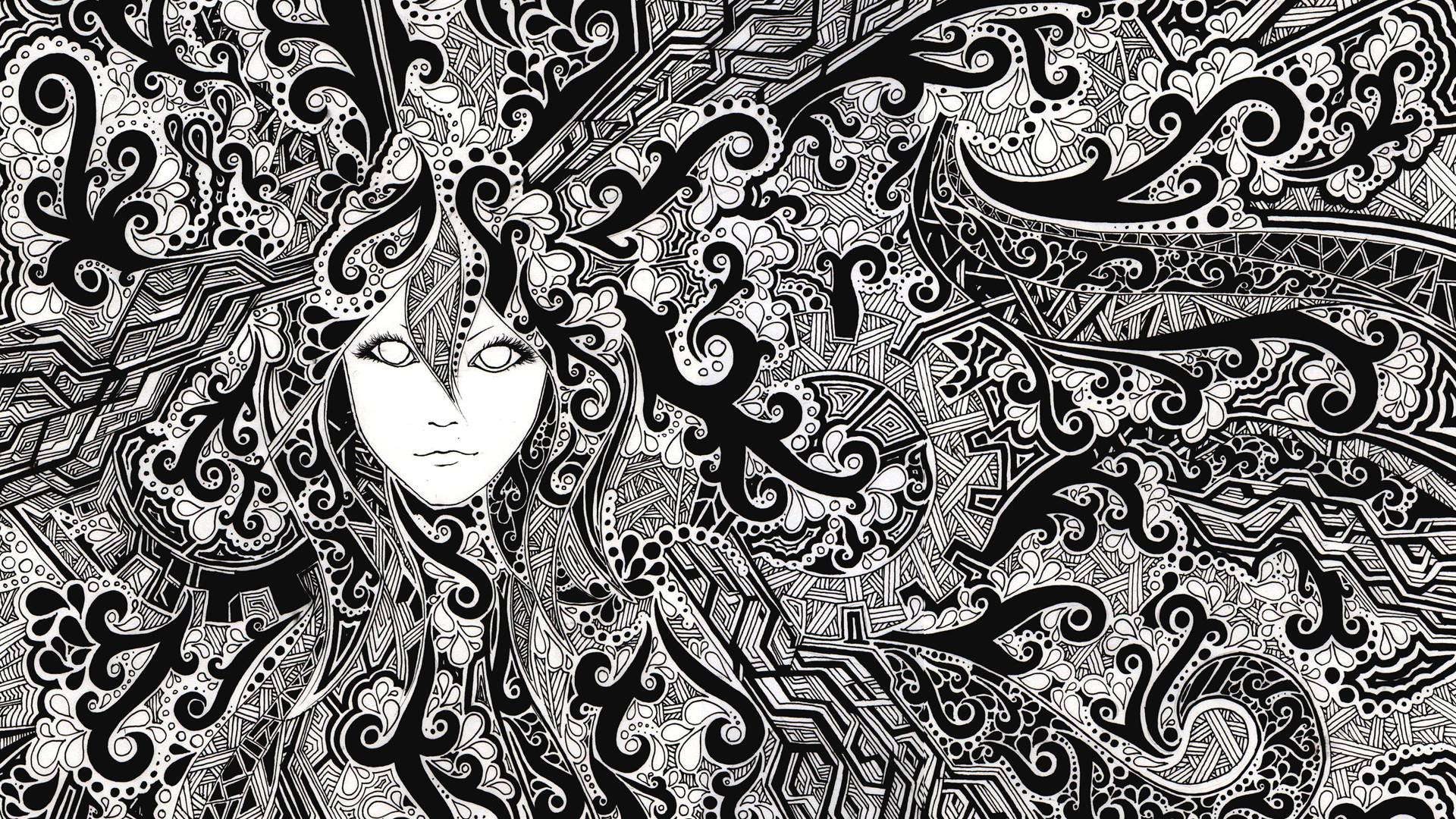There is no end point to meditation, there is no goal. There is no point to it, no logic to it. Everything thought does is about ‘the projected end-point’; its activity is always about ‘striving to obtain the goal’, or ‘pushing on towards a conclusion’, but meditation has nothing to do with thought. Meditation reveals a world that is very different indeed from the world that has been created by thought – it is a world in which no conclusions can be drawn.
Our prejudice is to say that a world about which no conclusions have been (or can be) drawn is no world at all. We are very much inclined to say that such a world cannot possibly hold any interest for us, but the truth of the matter is that the ‘un-concluded’ (or undefined) world is the real world, the only world there is. Anything else is merely a construct. What we fail to see when we look at things in our ordinary way is that none of our conclusions (which are thought’s conclusions) are ever true. They couldn’t possibly be true since there isn’t – and never could be – any such a thing as ‘a conclusion that can be meaningfully drawn in connection to the unfettered movement which is reality.
Our conclusions are no more than arbitrary mental projections that we choose to take seriously. Or to put this another way, our conclusions about the world (or about ourselves) are more than ‘the point at which our curiosity about the world comes to an end’. Our conclusions (or judgments) mark the limit of our interest in our situation. This is inevitably going to be the case since things will always prove to be ‘not what we took them to be’ if we are willing to persist with our investigations in an open-minded way. Our curiosity – if it remains undimmed – will always reveal the real world to us, which is ‘the Undefined World’, ‘the world about which we can draw no conclusions’. This is a world which comes with ‘nothing to hold onto’ and this is why we don’t like it. We like ‘handles’!
It’s not just the case that the conclusions we draw (or the judgments we arrive at) the indicate the ‘high-tide mark’ of our curiosity, the ‘limit of our interest in the world’ – when our curiosity is capped then it isn’t curiosity; if our interest ends somewhere then it isn’t interest. The contrary is true – when we ourselves set limits to what we are going to be interested in then this equals ‘a complete closing-down of all our curiosity’ (which is just another way of talking about ‘full-scale denial’). Where we only care about what we ourselves say is real (i.e., when we only have time for our own approved and sanitised version of reality) then we don’t care about anything! After all, if we don’t care about the world ‘as it is’, with all its wonders, but only in ‘the world as we say it is’ (which has no wonders in it, but only bureaucracy) then this is clearly an ‘inverted’ (or ‘backwards’) form of caring. What we are looking at here is Inverted Curiosity.
The ‘inverted form of interest’ that we’re talking about here is something that we more commonly refer to as fear – there is no other reason that we would want to limit our interest in the world. Fear is absolutely the only reason we would engage in such a deeply perverse act. Fear however does not engender honesty in us but self-deception; it cannot be ‘straight’ with itself because it needs to hide from itself, because it needs to conceal it’s true nature. To put this another way, if I know myself to be afraid then this is in itself frightening and so I simply can’t allow this awareness (the awareness that I am afraid) to be there.
Fear is usually disguised as something else, therefore. I don’t say that ‘I have no interest in reality as it is in itself’ because this is a dead giveaway – it’s clear that there is something not right in this case, the ‘illness’ is obvious. The way we get around this is by giving all our attention to the Nominal World, the ‘world as we say it is’, and relating to this construct on a full-time basis instead. On the face of it we do care about things therefore, on the face of it we are engaging, we are relating, only we’re not because it’s all just ‘empty theatre’, an act that we’re putting on. To relate to our own constructs, to our projections, is not to relate. That’s simply narcissism! We can relate to something outside of ourselves, we can relate to the world ‘as it actually is’, but we can’t ‘relate to ourselves’ – that’s just not a real thing! To be relating only to our own projections is to be trapped in a private bubble of unreality…
It’s not just that we do this ‘on purpose’, of course – it’s just what happens, it’s just ‘the way things are when we fall under the power of fear’. What happens is that everything flips over so that our ideas about the world, our symbolic representations of the world, become (apparently) real, whilst what our ideas are supposedly about, what it is that we are supposedly representing gets completely forgotten about. This is the Fall, this is Lila, this is Cosmic Forgetting (which is what Alan Watts refers to as ‘The Game of God)’. If we dip into Hindu mythology, we can say that this is where Brahma the Creator forgets who he really is as he plays the Game of Illusion that has been instigated by Mara, the Great Deceiver.
This is why we can say that there is no ‘end-point’ or goal in meditation – end points and goals are Mara’s illusion, they are the very device by which Mara causes Brahma to forget who he actually is. The awesome power of this dynamic between ‘Forgetting’ and ‘Remembering’ is something that we just don’t appreciate in the Western Rational Paradigm. We are terribly blasé and we really shouldn’t be – we are turning our backs on the The Predator that is just about to devour us! We imagine that all we need to do is turn meditation into a standardized procedure or protocol that we can then ‘roll out’ wherever it is needed. We think we can describe it and turn it into a method; we imagine (or at least we are very prone to imagining) that we understand what meditation is all about and can therefore utilise it to suit our needs, our purposes.
If – however – meditation is ‘that process in which we are continuously moving beyond our thoughts or theories about the world’ (which is the other way of saying that ‘there are no goals or endpoints in meditation, no conclusions that can be drawn’) it makes no sense to imagine that we can use it to ‘suit our purposes’. How can our purposes be served when we keep going beyond them, after all? What’s going on here is something completely different from our regular, run-of-the-mill type purposeful activity, which is simply the mechanical or deterministic acting out of our agendas – this is what consciousness does when we don’t interfere with it, when we don’t limit or control it. Consciousness has its own thing going on that has nothing whatsoever to do with what we think and believe, nothing to do with our restrictive agendas, nothing to do with our non-stop infernal ‘busy-ness’.
What we automatically try to do is to contain everything that is going on within the sphere of thought, within the context of thought. This way we feel as if we know what’s going on, this way we perceive ourselves to be ‘in control’. We’re not, we just feel that we are, we perceive that we do and this is all the comfort that we’re looking for. We’re not in control and we don’t know what’s going on however – that’s just the fragile illusion that thought generates for us. Thought is blind, it never knows what it’s doing; it’s a mechanical phenomenon so of course it can’t ‘know’ what it’s doing – it just runs on rules and rules, as Jung says, are a substitute for consciousness. Thought can’t contain meditation, but this is something we find very hard to ‘get’; we’re so familiar and so comfortable with thinking that everything is about our agendas (that everything is about us), that everything is about the busybody ego and its game plan, that we just can’t understand that there could be anything else (anything else other than ‘us acting on our ideas and trying our best to realise them’).
There is ‘something else’ however and what this ‘something else’ is the process of ‘opening up’ that naturally occurs when we don’t restrict our curiosity about the world because of our fear of what we might find out otherwise. What we’re talking about here is actually life itself – life itself is the spontaneous process of ‘opening up’. Life – which proceeds, as Jung has said – according to its own law, not ours – just happens to be something we’re not at all interested in. Our ‘default mode’ is to be running away from life whilst pretending (in a thoroughly grotesque fashion) to be celebrating it; as we have just said, our ‘interest’ is inverted which means that what we really care about is ‘finding new and improved ways of running away whilst redefining our ‘running away’ in terms of progress, in terms of ‘advancement’, in terms of ‘making a better life for ourselves’. It’s not ‘a better life’ that we’re making for ourselves at all but a securer and more water-tight illusion – it’s just that we can’t afford to be honest about this…
Image – wallpaperflare.com






